Slatiny Slum
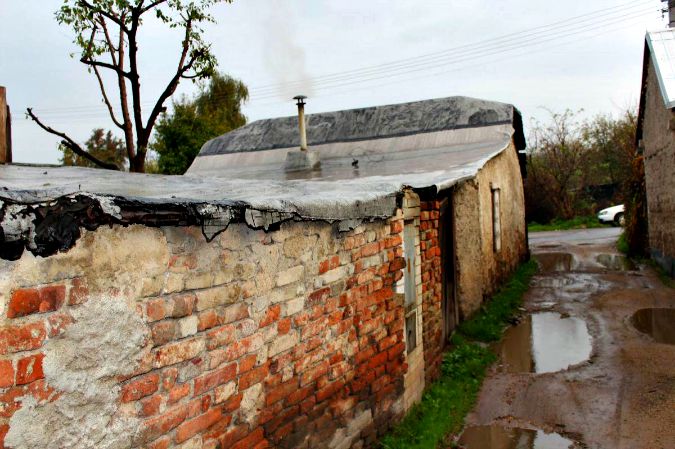
Bordering Michle and Strašnice, this is one of the dozens of slums for the unemployed during the First Republic which has been maintained to this day. The slum is a rarity in Prague today; it is a special island with its own life, seemingly from another place and time. Note to Czech film buffs: Scenes from the early ’90s hit Obecná škola (Elementary School) were filmed here.
Terraced Houses on Lomená Street
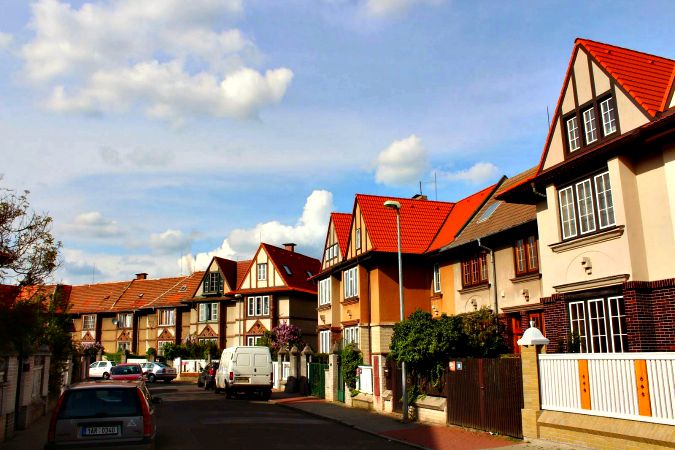
These row houses in the Ořechovka luxury villa district, built between 1920-1922, imitate the English cottages that can be found in garden townslike Bedford Park, Hampstead, or Letchford with their typical triangular gables, narrow rectangular windows, high chimney, and half-timbered masonry bond.
The “Home” (Domov) Enclave
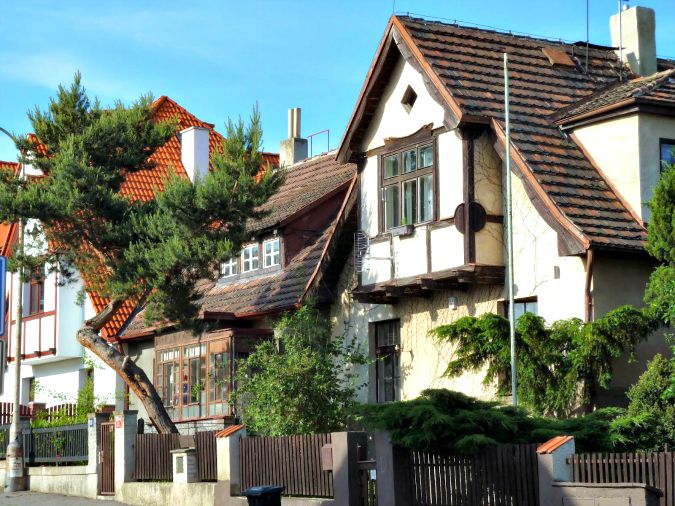
In Žižkov near Strážní (On Guard) Street, you will find a colony of fairy-tale houses featuring beautifully styled gables accentuating wooden timber framing with folk art nouveau influences. This rural enclave was built in 1922 as housing for civil servants and their families. All of the surrounding streets have names evoking a sense of small-town security: Na Hlídce (On Patrol) Street, Na Vlastním (On Its Own) Street, V Domově (At Home) Street, V Bezpečí (In Safe Place) Street.
Jarov Preserved Wooden House
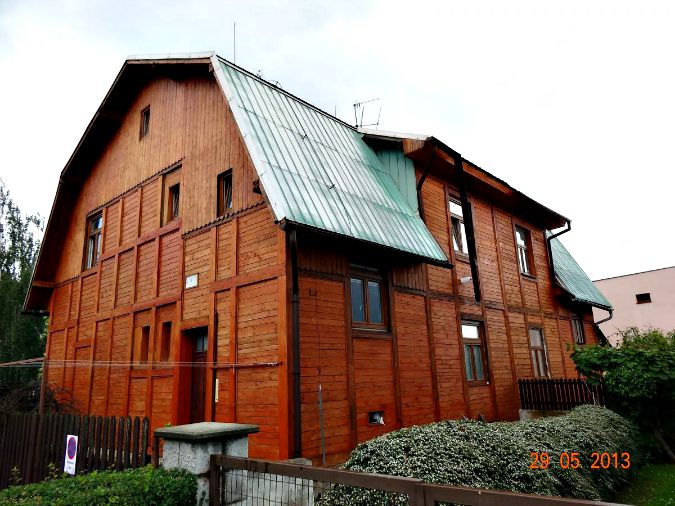
Also in Žižkov, in the Jarov neighborhood, you will find this unique wooden house, which looks more like a summer cottage fit for the woodlands of Southern Bohemia than part of an urban settlement of worker’s housing from the early 1920’s.
La Défense, Kavčí Hory
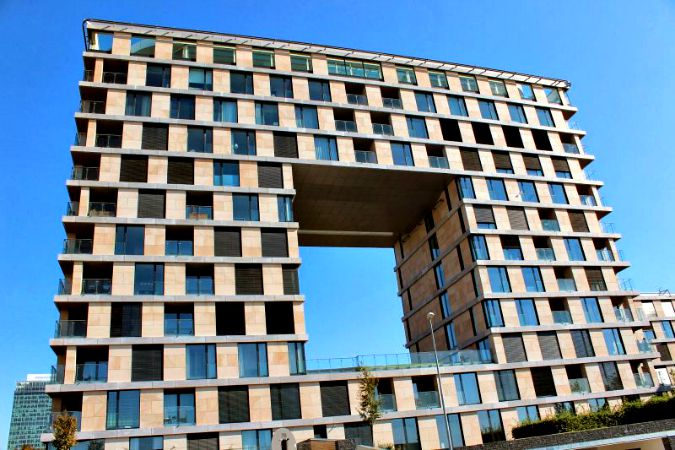
Is it the Parisian high rise district—complete with Grande Arche and esplanade? On the contrary it’s Prague’s answer to yet another Paris landmark; though not quite as scenic as the mini-Eiffel Tower, the area is still worth visiting for its farmer’s market and famed “Halfway Cafe.”
Libeň Water Tower

The smallest Prague waterworks, built in 1904, captures the same romantic spirit as a Dutch maritime beacon, with its octagonal anchor holding steadfast not to coastal rock but the shores of Prague 9. It is currently being developed into a luxury residence.
Troja Fishermen’s Settlement
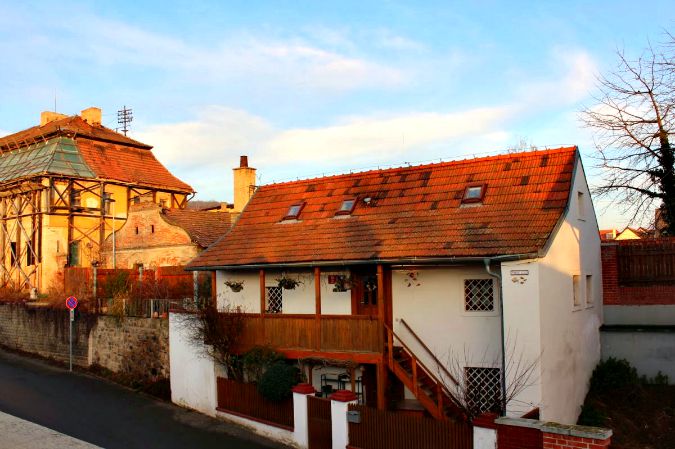
A picturesque cluster of cottages, which includes the turn of the 18th century farmhouse pictured here, makes up the only preserved village located in the Vltava flood zone that stands today. Here fishermen once worked as laborers in the surrounding farmyard or, until the 20th century, fished. The area and its outbuildings have, sadly, fallen into disrepair.
Prague’s Wild West (a.k.a. Old Hlubočepy)
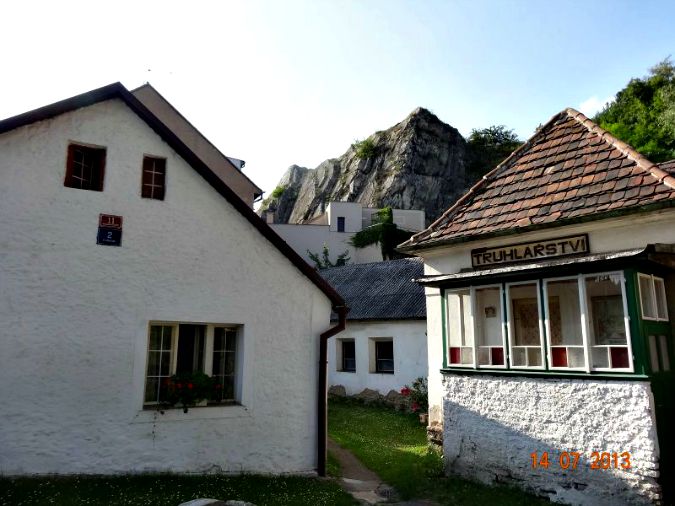
Old Hlubočepy is surrounded by a wild, dramatic landscape with rocks which seem to have been lifted from Wild West movies, not the Czech capital. The old one-story suburban houses crowd around a small square with a railway crossing and peripheral streets extend right up to the cliffs.
**
Petr Ryska is the author of the popular website Uknown Prague (Praha Neznámá). He offers guided tours in English of many of the sites mentioned here. He is currently at work on his first book.












 Reading time: 2 minutes
Reading time: 2 minutes 

















